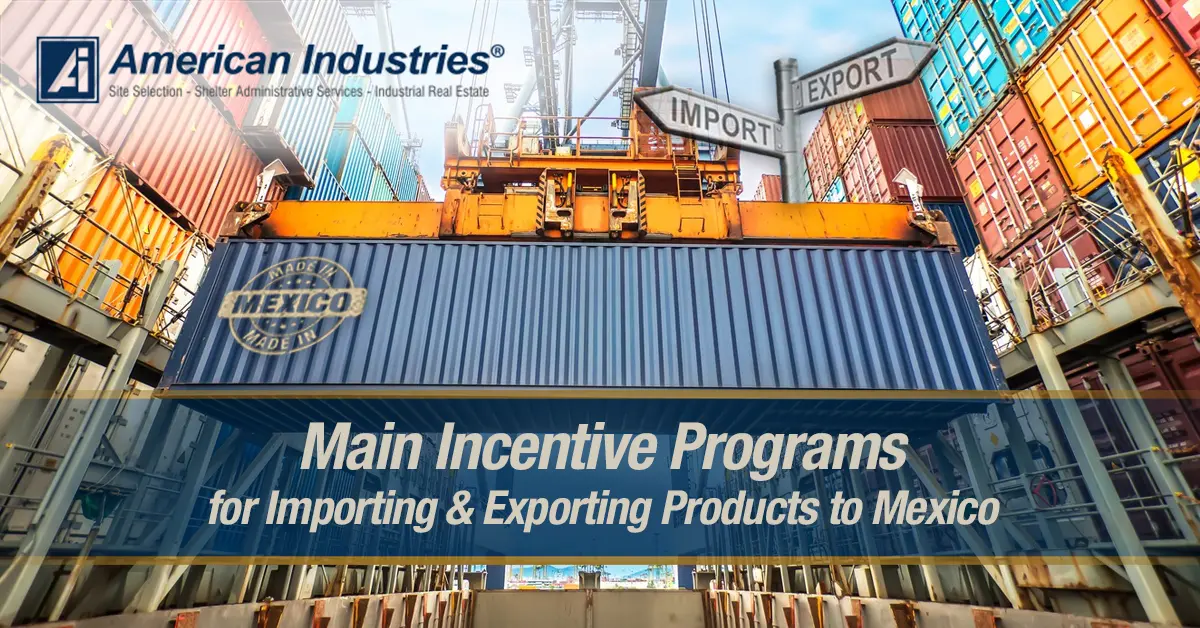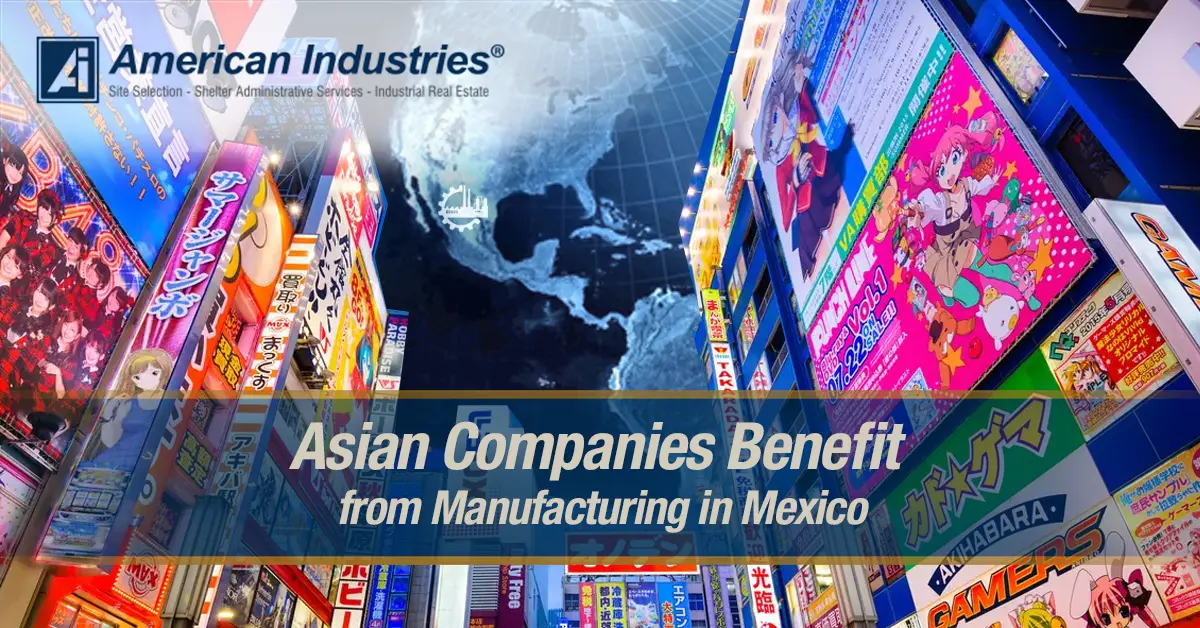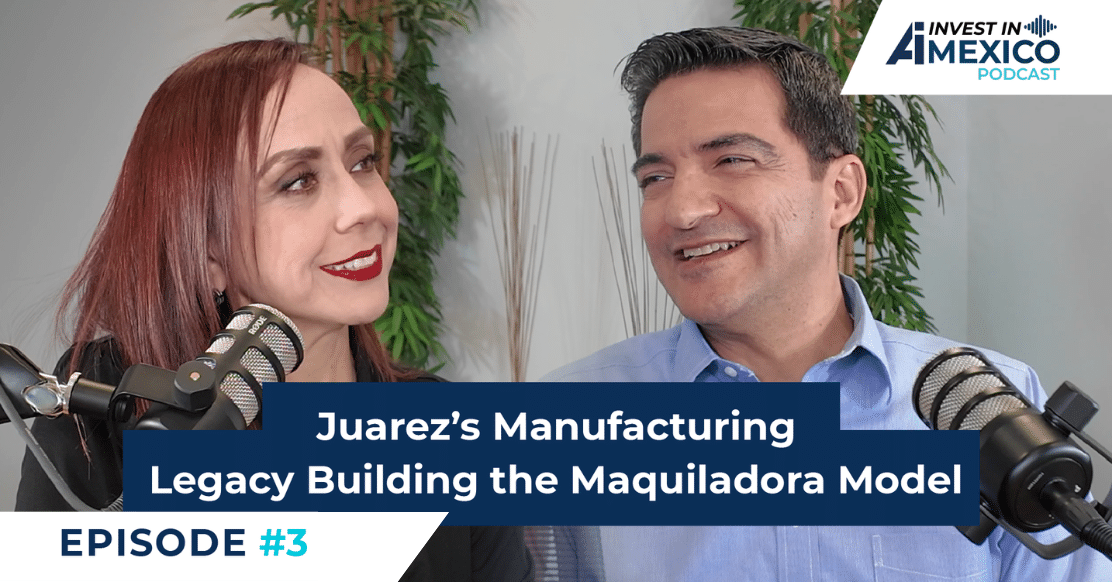Manufacturing in Mexico vs. China: which is better?
By Marian Garibay | Guadalajara Regional Director at American Industries Group®

Published 04/14/2025
In recent years, there has been a noticeable trend among companies to move their manufacturing operations from China to Mexico. This shift is due to geopolitical factors such as the trade tensions between the United States and China, the rise in tariffs, and disruptions in the supply chain, which have forced companies to reevaluate their long-term strategies. Many have discovered that manufacturing in Mexico can significantly improve their profitability, logistical efficiency, and overall market competitiveness.
Key Industries in Each Country

Mexico vs. China: Comparison of the Manufacturing Industry
The attractiveness of Mexico as a manufacturing hub goes beyond its mere geographical advantages. In particular, it offers access to a wide network of trade and free trade agreements, ensuring open trade and easy access to regional markets. The availability of a highly skilled and technically competent workforce strengthens its competitiveness. Legal security in trade policies is reinforced through agreements like the USMCA, while its well-integrated regional value chains provide a consolidated supply chain infrastructure. This is complemented by top-level logistical capabilities that significantly reduce lead times and transportation costs.
Location
Logistics
Transit Times
Supply Chain
Shipping costs also represent a notable difference between the two countries. Transporting a 40-foot container from China to the United States is 82% more expensive than sending it from Mexico. This substantial difference reinforces the efficiency of the nearshoring model.
Additionally, China’s dependence on long-distance maritime transport exposes it to greater global logistical risks, while Mexico, thanks to its proximity, offers a more resilient supply chain.
This proximity has led to a notable increase in commercial integration: between 2020 and 2021, U.S. companies’ purchase offers to Mexican suppliers grew by 514%, confirming the preference for regional sourcing.
Labor Costs
In the Last Decade
In the past decade, the average wage in China’s manufacturing sector has grown at an annual rate of 10 to 15%, whereas in Mexico, this growth has been more moderate and stable. This cost stability strengthens Mexico’s long-term competitiveness, allowing companies to plan their labor budgets with greater certainty.
The availability of talent also plays a crucial role. While the manufacturing workforce in China has decreased since 2011, Mexico's population continues to grow at an annual rate of 0.8%, ensuring a stable and growing source of young, productive workers.
Manufacturing Costs

Shipping Costs
Transportation Costs
Industrial Real Estate
One of the factors that make manufacturing in Mexico more attractive is access to high-quality industrial spaces at competitive prices. The average rent for an industrial warehouse in China is approximately $14.4 per square foot, while in Mexican cities like Mexico City, Tijuana, and Guadalajara, the average cost is only $6.87 per square meter per month. This represents a cost reduction of up to 52% compared to China.
Additionally, Mexico is experiencing significant expansion in the construction of modern industrial warehouses, especially near the U.S. border. These facilities have an average size of 23,000 square meters and are designed to meet the needs of foreign companies looking to relocate their production.
Trade Agreements and Tariffs
Mexico has 52 active trade agreements, giving it preferential access to markets representing approximately 60% of global GDP. Agreements such as the USMCA and the CPTPP provide Mexican manufacturers with favorable tariff conditions in key regions like the United States, Canada, the European Union, and Asia.
A clear example of this advantage is seen in the tariffs: most Mexican products enter the United States with a 0% tariff thanks to the USMCA, while Chinese products face tariffs ranging from 7.5% to 25% or more, especially in strategic sectors such as machinery and electronics.
Exchange Rate
Foreign Investment in Mexico vs. China
Mexico has experienced a significant increase in foreign direct investment (FDI), particularly from U.S. companies seeking to relocate their operations closer to home. In 2023, Mexico attracted $36 billion in FDI, reflecting the boost from nearshoring and a strong industrial ecosystem.
That same year, Mexico became the United States' largest trading partner, with bilateral trade surpassing $800 billion, outpacing China and Canada. This confirms Mexico's strategic role within North America's supply chains.
Energy Costs
Manufacturing Challenges in China
While China has long been an attractive manufacturing hub, companies must be aware of the growing challenges associated with operating there:
- Language and cultural barriers that complicate direct communication
- Long distances that cause logistical delays
- Less transparent government policies
- Concerns about intellectual property and technology transfer
- Increasing risks due to ongoing trade tensions between the United States and China
Benefits of Near Sourcing in Mexico
One of the most impactful trends in global logistics and trade has been the rise of near sourcing, and Mexico has consolidated itself as a key destination for this strategy. By relocating production closer to consumer markets, near sourcing offers several strategic and operational advantages, in addition to cost savings:
- Greater control and visibility over production
- Faster delivery and reduced lead times
- More flexibility to respond to changes in market demand
- Lower in-transit inventory
- Simpler on-site visits and audits
- Enhanced collaboration with suppliers
- Starting a Business in Mexico

How can companies relocate their production to Mexico?
Companies looking to relocate their manufacturing operations to Mexico should follow these steps:
- Evaluate their current supply chain to identify logistical, labor, and regulatory needs.
- Choose a strategic location, considering access to suppliers, industrial parks, and proximity to the U.S. border.
- Partnering with a shelter services provider like American Industries, which facilitates quick, low-risk, and compliant entry into the Mexican market.
American Industries has over 50 years of experience helping international companies establish and expand in Mexico. Our comprehensive shelter services include:
- Operational and legal management to comply with all fiscal, regulatory, and permit requirements
- Recruitment and hiring of highly skilled personnel tailored to each industry
- Support in obtaining certifications such as IMMEX, IVA-IEPS, and OEA
- Leasing of industrial properties in strategic locations
- Ongoing administrative support so your team can focus entirely on production
Establishing operations in Mexico with the support of an experienced partner like American Industries minimizes risk, accelerates time-to-market, and ensures compliance with local laws.
Are you considering relocating your manufacturing operations to Mexico?
If you would like to find out more about this topic or are interested in receiving a complimentary business case analysis for your operation in Mexico, please fill out this form or contact us at:
US toll-free: +1 (877) 698 3905
Attention hours from M to F 9:00 - 18:00 CST
Please note that we do not accept job applications here. If you are interested in applying for a position, please visit the following link: https://www.americanindustriesgroup.com/jobs/
YOU MIGHT ALSO LIKE






